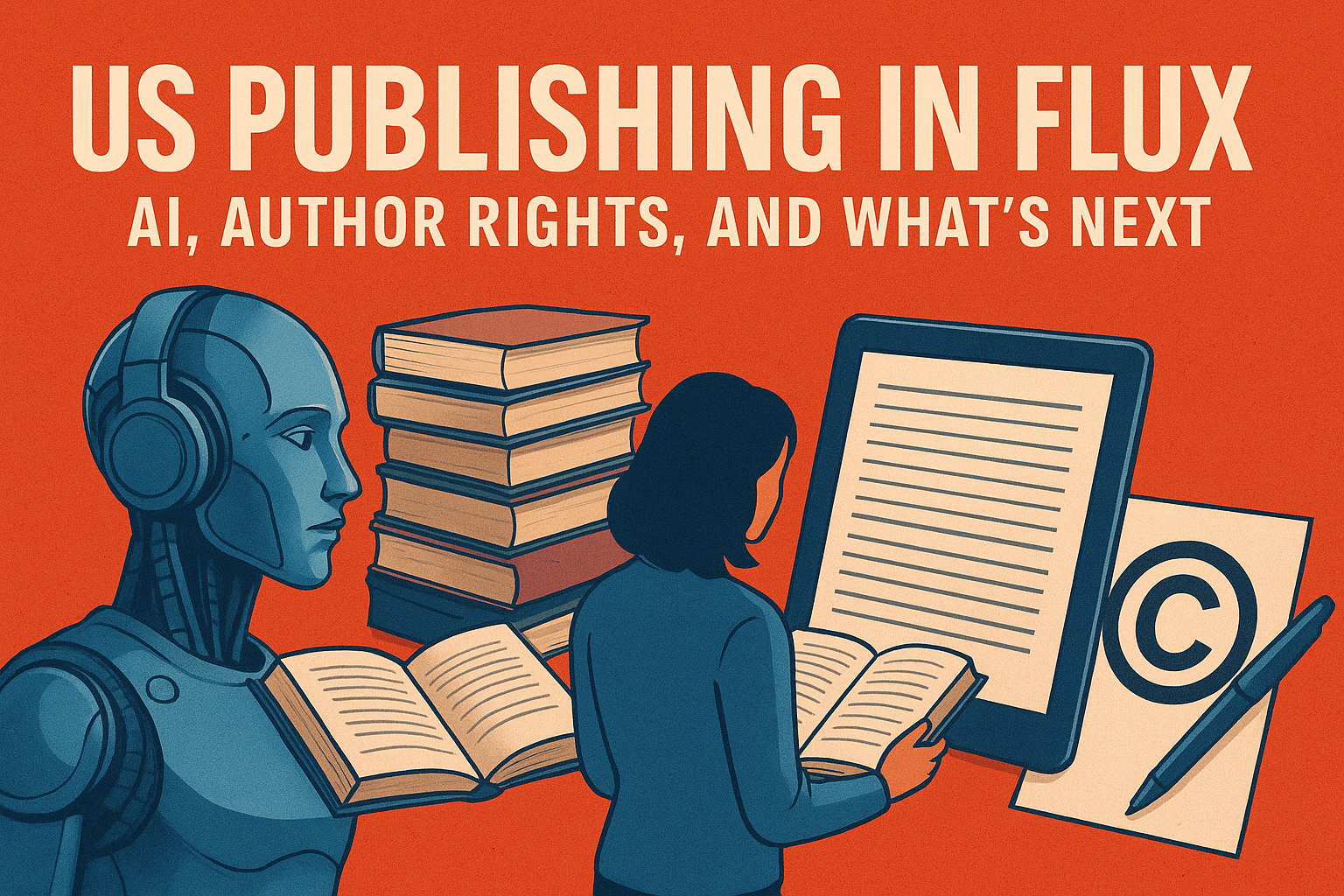Self-Publishing vs. Traditional Publishing: Which is Right for You?

If you just finished writing your manuscript, you would understandably want your work printed. The main question though, is how do you get it printed? There are two great options that you could take.
There is self-publishing, and there is traditional publishing. Both options are quite effective, and have their fair share of advantages and disadvantages. If you are going to choose a publishing option, you should make sure that you are as well-informed as possible. This article aims to inform readers the advantages and disadvantages of self-publishing and which of the options is best for you.
What is Self-Publishing?
This option is by far the newer of the two. While some authors did self-publish their works, it was never really a workable publishing method. It was only a few decades ago that the self-publishing option became mainstream. In layman’s terms self-publishing is the process of publishing a book without the help of a traditional publishing company. If you are going to try out self-publishing, you should take a look at their key advantages and disadvantages.
Advantages of Self-Publishing
Full creative control
A key setback to having your work published by a traditional publishing house is that you may not have full creative control. This is because most traditional publishing houses have their own way of doing things, and they won’t really take your creative input into account.
No need for rejection
Traditional publishing houses are notoriously difficult to get a publishing deal with. This means that you will be rejected a lot of times before you actually get a publishing deal. By self-publishing your book, you will at least take away any chances of rejection. Instead, you’ll be able to publish your book and have full control of the entire publishing endeavor. Having your work rejected is a daunting process, and could affect your perception of the publishing process.
A chance to publish right away
If you wait until you get a publishing deal with a traditional publishing house, you may have to wait for a long time. By self-publishing your book, you could get started on the publishing process right away. This takes away the added frustration of waiting for a publishing deal, and the disappointment should you get rejected. If you are going to self-publish your book though, you should make sure that you are as well-prepared mentally and financially as possible. Remember that self-publishing a book is still a challenge, so you should be as prepared as possible.
Rights and royalties ownership
A great aspect of the self-publishing option is the fact that you get to keep the rights and royalties to your book. This is very advantageous compared to traditional publishing house deals, because you are expected to give up a majority of the rights and royalties to your book. A good number of traditional publishing houses pay authors upfront for the rights to their books. They also take a majority of the royalties for book sales.
Traditionally published authors usually get around 7.5% for paperback sales and 15% for hardcover sales. You should also take into account that you will have to share the profits if your book gets adapted into a film or TV show. You will get a big payout upfront from traditional publishers, but at the cost of potential earnings in the future.
By self-publishing your work, you will get to keep the rights to your book, and keep up to 60% to 70% of royalties for your book sales.
Disadvantages of Self-Publishing
High upfront cost
While self-publishing has advantages, it also has its fair share of disadvantages. The high upfront cost of self-publishing is a key example of a disadvantage. Remember that you will need to pay for the overall cost of self-publishing a book. According to most self-published writers, the average cost of self-publishing a book is around $500 to $4,500, this depends on the quality of the printing, and other key self-publishing technology that you may use.
If you are going to self-publish your book, you should make sure that you take a close look at your budget. This will stop you from overspending on the self-publishing process and save money in the long run.
Labor intensive
Aside from the high upfront cost, publishing a book without the help of a traditional publisher could be quite labor intensive. Remember that there are many aspects of the self-publishing process you will need to take into account. You will need to edit the manuscript, design the book cover, look for a printer, market the book, find multiple book distributors, and a multitude of other things. This takes up a lot of time, and could be stressful for newbie writers.
Please take into account that there are ways to minimize the stress of self-publishing. A great way is to hire a self-publishing company. These companies specialize in helping self-published authors with every aspect of the publishing process. This includes aspects such as the printing, book design, book marketing, and distribution.
Bookstores are wary about self-published books
From a traditional standpoint, bookstores are usually the best platforms where you could sell your book. This gives self-published books a certain disadvantage because bookstores are usually wary of self-published books. This is because there is a stigma that self-published books have yet to gain a fan-base and are a risk. As a self-published author, you should know that getting your book into a bookstore's bookshelves could be quite an uphill battle.
Lack of influence within the publishing industry
Self-published authors usually have a hard time establishing themselves in the publishing industry. This is because traditional publishing is still the norm, and readers usually take the publisher of the book into consideration. As a self-published author, you may have a hard time marketing your book to new readers. You will first struggle to create a fan base for your work, and getting book shelf space in bookstores.
Is this publishing route right for you?
This publishing route is best for authors who don’t want to deal with traditional publishers and their strident standards. Self-publishing will allow you to publish your work right away, and have overall control of the whole publishing project. You won’t have to answer to push editors, and you will have full rights to the book, and royalties. If you are confident in your ability to publish and market your book by yourself, then self-publishing is a good option. However, you should also take note that you will need to pay for the whole process yourself, so you will need to have enough resources to go through with it.
What is Traditional Publishing?
This publishing option is by far the older of the two, and is the most commonly used by most writers. This publishing method entails getting a publishing deal with a traditional publishing house. The traditional publishing house will do most of the work, and will also pay for the whole publishing process as well. If you are interested in taking the traditional publishing route, you should take a look at its advantages and disadvantages.
Advantages of Traditional Publishing
Established relations with readers and bookstores
Should you choose to work with a traditional publishing house, you will not really have any trouble with getting your book into bookstores. A majority of traditional publishing houses have longstanding partnerships with bookstores. This means after your book is published, it will most likely be sold through various bookstores. Traditional publishing houses are also notable for their online bookstores, and could double your chances of selling your book.
A good number of traditional publishing houses are also much respected amongst literary circles. So if you have your book published by traditional publishers, the name value itself could get you book sales.
The publishing house will pay for the process
If you do get a publishing deal with a traditional publishing house, you should take into account that they will pay for the whole publishing process. This means that you won’t have to shell out a single penny for the whole publishing process. This is a very big asset, because publishing a book could cost a small fortune, so you will get to save money in the long run.
Traditional publishing houses also pay their authors upfront for some of the rights and royalties of their books. The payment usually varies, but they are usually sizable and a good deal, because there is no guarantee that your book will be a success right away. So think of this as a risk for the traditional publishing house and that they are taking the brunt of it for you.
The publishing house will handle the whole publishing process
Publishing a book is no laughing matter. It is very work-intensive, and takes a lot of time and resources. Should you manage to get a publishing deal with a traditional publishing house, you will no longer have to worry about this process. A majority of traditional publishers have in-house publishing professionals that will do most of the work for you. This is a great opportunity, because there are many parts of the publishing process, and doing them yourself will take all of your time and effort.
Traditional publishing houses are great book marketers
Yet another advantage of working with a traditional publisher, is the fact they are notable for being great book marketers. The book marketing process is very work intensive, and you will need multiple book marketing platforms in order to market your book the right way. Luckily, a majority of traditional publishers have teams of book marketers that will do all of the work for you. Traditional publishers also have various online platforms that will enhance your book’s overall marketing reach.
Disadvantages of Traditional Publishing
Traditional publishing houses will take a majority of the rights and royalties to the books they sign up
If you are going to work with a traditional publishing house, you should remember that you will have to share the rights and royalties to your book. Most traditional publishing houses will offer upfront payment to the authors.
This will usually entail that you share the rights and royalties to your book, and should your book be adapted into a film or TV series, they will also get a percentage. As a rule, you should consult a lawyer before you sign any contract with a publishing house. This will ensure that you are protected and that you get the best deal possible.
Traditional publishing houses are very picky with the books they sign up
While working with traditional publishing houses may seem like a perfect scenario, they are notorious for being difficult to get publishing deals from. This means that there is no guarantee that your work will be chosen. You may have to go through multiple rejections before you could even get a publishing deal.
Getting rejected by a traditional publishing house is a disheartening experience for any writer, and could damage your confidence in your skills as a writer. So if you are going to try out for traditional publishing houses, you should make sure that you steel yourself for any rejection that you may experience.
Authors will have to adhere to the schedule of the publishing house
If you want to get your book published as soon as possible, then traditional publishing is not the best option for you. This is because you will need to send out your manuscript to various traditional publishing houses. Even if you do get a publishing deal, you won’t get started right away. You will need to follow the set schedule of the traditional publishing house you are working with.
Is this publishing route right for you?
Working with traditional publishing houses is a good route if you are in no rush to get your work published, and if you are ok with sharing your rights and royalties to your book with the publishing house.
Conclusion
After finishing your manuscript, you will want to have it published, and show the world your talents as a writer. There are two choices that you could choose from, which are self-publishing and traditional publishing. While both options have their benefits, they also have their disadvantages as well. When it comes to choosing the best publishing option, you should make sure that you are as well-informed as possible. With this article, you will know what publishing option is best for you.




